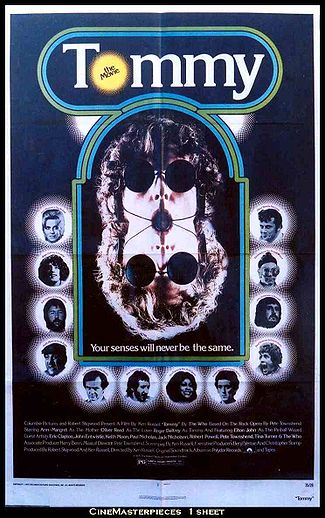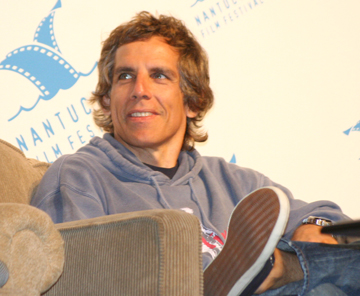
The Israeli family drama By Summer's End is bathed in warm sun tones of yesteryear. Yet for all its nostalgia, the film was conceived as an unsentimental critique of the past. Writer/ director Noa Aharoni calls out the country's male-centric traditions and laments the sins of the fathers visited upon the children.
Set on a rural moshava in 1978, the film opens as a young mother, Michal (Michal Varshai), struggles to handle her willful daughter, seven-year-old Maya (Bar Minali). Maya is stumped in her efforts to read and write, and her teacher will only promote her to second grade if she passes a literacy exam at the end of the summer. But unforseen developments will complicate the scene, turning this summer into a fateful test for the family and beyond.
After a 30-year absence, Michal's elderly father Haim (Yair Rubin) suddenly comes back into her life. Although Michal is inclined to make peace with the man whose earlier abandonment destroyed his wife and young family, her older sister Naomi (Sarit Vino-Elad) is bitterly opposed. Haim accepts Michal's invitation to move into her home, further straining her marraige to the skirt-chasing Rafi (Ishai Golan) and pushing the sisters' relationship to the brink.
While Haim cultivates a relationship -- and a garden -- with his granddaugher Maya and grandson Ido (Itamar Orani), the film digs down to the roots of trauma holding family members in a vicious cycle of abandonment and pain. This inertia manifests in Naomi's hawkish stance towards Haim, which leads her to forbid her son Lior (Orian Daymond) from joining his grandfather and cousins. The funk that has kept her bedbound and unmotherly since her husband left her suggests a withdrawal from life not unlike what claimed her heartbroken mother's life. Michal, hobbled by her own dose of self-doubt, may be similarly at risk of turning into their mother.
The drama unfurls against a fraught political backdrop as the Begin Administration zigzags towards clinching a peace agreement with Anwar el Sadat's Egypt. By the same token as Maya must now learn to read and write, so too Israel has till "summer's end" to become politically literate and functional. What will it take for all parties to begin trusting one another and find freedom from past fears?
On a recent snowy morning in New York, I video Skyped Aharoni in Israel to talk about her feature debut, which won Special Mentions at both the Haifa International Film Festival and the Rehovot Women’s International Film Festival in 2011. By Summer's End is a selection of The Ring Family Wesleyan University Israeli Film Festival (Thursdays, January 30 - March 6, 2014), organized by Adjunct Assistant Professor of Religion and Israel Studies Dalit Katz.*
Q: Why did you set the film in 1978 on eve of Camp David accords?
NA: I wanted to show the peace process not only from the individual point of view -- in the family -- but also symbolically regarding the State, that it has to make peace with its enemies like the daughter Michal did with her father. It's a symbol of growing up and forgiving and forgetting the whole hostile environment.
Q: Is Haim's letter writing to Prime Minister Menachem Begin urging peace and reconciliation with Egypt an attempt to finally do right?
NA: He was writing letters to his daughters all these years, but he never sent them. He has intentions, but he never fulfils them. So at the end of the movie the grandchild, Maya, takes the letters and stamps them. By that it means is that the next generation is going to correct the wrong.
Haim is left-wing and Begin is right-wing. Haim is suspicious that Begin won't go through with the peace since he was from a different political party, but he was writing the letters to make sure. Though many Israelis were trusting Begin and believing that peace was going to be fulfilled, there were a lot of obstacles during that time and a fear that peace wasn't possible. Delegations were going all over the world trying to make it happen -- Paris, London -- everywhere, but until Camp David occurred it wasn't a sure thing. Still, the year 1978 was really a time of optimism.
Q: What is the legacy of personal betrayal and abandonment in your film and how does it invoke the biblical passage of "visiting the sins of the fathers upon the children unto the third and fourth [generations]."
NA: The first generation really scarred the second generation, and it all repeated itself. Naomi was abandoned by her husband and Rafi has been cheating on Michal. It's a psychological process at work.
Q: Does the expectation of betrayal become a self-fulfilling prophecy across the generations?
NA: Yes, and there's a chance that it's going to go on to the third generation and get to Maya and Lior. Lior is already learning the skills of abandonment and is already practicing bad behavior with his cousin. He has learned from his father who abandoned him and from his uncle whom he has seen have an affair in his clinic. They learn from what they see.
Q: How did you link the trauma of abandoment with the inability to believe that one is loved?
NA: When you're abandoned by both of your parents, it's hard to have self-esteem and to believe that somebody cares for you, let alone love you. Michal has really interiorized these thoughts and feelings. And also Naomi. They only have each other because they were both in the same situation of abandonment. The mother was there physically at some point. But then she committed suicide. And before that she wasn't there for them emotionally because she was grieving. So these two sisters were just alone in the world. Nobody loved them. History repeats itself in their children.
Q: Did you intend for this drama of family dysfunction to be a symbol of Israeli civil unrest?
NA: I hadn't thought about that, but when the film is on the screen everybody can interpret it as they wish.
Q: What do you say to feminists about the women's dependence on men, from Michal's acceptance of her husband's philandering to Naomi's having retired to her bed since her husband left?
NA: These women are from 1978. For the era, I think it's a very feminist movie because it shows the difficulty of what women were dealing with then. With all that they have to cope with, Michal and Naomi are eventually both really strong women. Michal kicks out her father and husband even if she ultimately embraces them. And even with Naomi's depression, she's still a really strong woman. It shows how women tried to cope in that period, when Israel was such a man's world. Being alone all day and hearing that your husband is screwing the whole village, this is a real issue. In the movie Michal is critized by other people in the moshava; today people have more awareness and a community of supportive women.
Q: Lior's feelings towards his father's abandonment are left unexplored. Talk about your choice to explore the effect of abandonment on women more than on men.
NA: It's really simple: I'm a woman. It's much more interesting to me to say things about parents and female heroes. We have so many movies about male heroes because we have so many male directors. I think there should be a female point of view.
Q: On a small moshava like the one shown in the film, how would you describe attitudes towards marital infidelity during Haim's generation and after?
NA: It was never something that people accepted, especially not women and not anyone. We're not Eskimos yet. The characters don't even want to talk about it because it's really shameful. Michal knew about Rafi, but she was looking the other way. She didn't want to break up the family.
Q: What were your inspirations from film and literature?
NA: When I was in my teens I saw a great French film, Le Grand Chemin (Grand Highway). It's about a boy who spends a summer vacation on a rural village in Brittany, where he's exposed to a lot of things. The girl next door takes him around the village and he sees sex for the first time. As for books, I had in mind the temperamental red-headed heroine of the Swedish children's story Pippi Longstocking. These two characters really got into the film.
Q: To what extent, if at all, is the film autobiographical?
NA: The personal story here is the character of the child, Maya. That's the only thing. I wanted to tell a story about this free-spirited girl running around the moshava in bare feet. When you write a screenplay you have to have conflicts, so I made up this whole surrounding story. I was dyslexic, but I didn't know that at the time. Nobody did. It was really hard for me to learn to read and write and I didn't like it. I grew up on a moshava not very far from Tel Aviv called Mazkeret Batya.
Q: Was the fact of having dyslexia what made you/Maya a rebel or were you/Maya a rebellious spirit from the get-go, which fed into the dyslexia?
NA: I think it's both. I think you become a rebel from the get-go, but the dyslexia didn't help. But I think that has made me a filmmaker because it was hard for me to express myself in the normal way. So I took a different path, a creative path.
Q: How do you see Maya's future?
NA: I want her to continue being a strong-willed person and not to break down. We don't want her to be like all the rest of them, but also I want her to have a nice home with a loving husband, unlike the history of her father and grandfather. I think she will, because I think she'll fix things.
Q: What's the significance of Maya's turtle, which she first marks with paint and ultimately releases to be cleansed by a sprinkler?
NA: Let's start with the personal side of it. I had this turtle. I took him into my home and under my bed. That part of the film really happened. But eventually I saw that he wasn't eating anything. I gave him lettuce and carrots, but he didn't touch a thing. So eventually I understood that if I wanted him to live I had to let him go. But then I'd never see him again. I wouldn't know if it's him. So I painted his shell. This is really a true story, but I think it fits nicely in the film symbolically. It's a symbol of many things: it's a symbol of taking your home with you, like a turtle. It's a symbol of the grandfather who comes back into the home and when he dies, Maya sets free the turtle. The water is going to wash away the paint. Maya already got what she needed from the turtle and doesn't even need to see him again.
Q: Can this also apply to Haim's role in that he allows the family to let go of its protective shell?
NA: Haim's coming into the home that he broke once before now gives him a chance to restore his relationship with his daughter Michal and grandchildren because he's raising all issues that had long been hidden and repressed. By his return he makes everything visible again. When you deal with things you get an answer either way. When Haim dies he's not needed any more since he achieved what he was there to do.
Q: Intimate Grammar, The Flood, Sweet Mud and your film are all examples of recent Israeli films set in the 60s or 70s and exploring a fear of growing up. What's this about?
NA: The new filmmakers in their 40s are reexamining their childhoods in their respective environments. You can see the shift in Israeli film, which is not only talking about patriotism and war, but also about personal dramas.
Q: What were you going for with your summery palette of oranges and yellows?
NA: When I remember my childhood it was really colorful with a lot of light. It's like you take a picture and it's really vivid, but in a nostalgic way. It was really important for me to capture that exact colorfulness that I liked very much where everything is full of light and very summery. It's also a little fantastical. And after all this is not such a cheerful movie. It's a heavy subject to deal with. I think the contrast with the picture makes it more bearable.
Q: What inspired the music?
NA: Daniel Solomon, a very famous musician in Israel, composed the score. I gave him the disc of a TV show from my childhood, "Zraim shel mastik" ("Chewing Gum Seeds"), and told him I wanted something naive but also dramatic. He made a wonderful piece.
Q: What was it like working with Bar Minali, who played Maya?
NA: She was really a match made in heaven with the character. For that reason she was great. But on the other hand, it was really hard for me to discipline her on the set. She is really hyperactive and really sassy and she has all kinds of things that interest her besides acting. She really is like Maya.
Q: So you identified with Michal?
NA: Bar is really, really friendly and cheerful. So everyone in the cast interested her. At one point I said, "Cut!" and the next moment she disappeared and it really took a lot of time to get her back for another take. To focus the camera on her was really hard. But I love what she brought to the film. She was terrific. I would never take a calmer actor because she wouldn't give me what Bar did. I had seen Bar in a commercial a number of years ago and I had her in mind even before I wrote the script.
Q: What led you to cast Michal Varshai, who plays Michal?
NA: I didn't want to take someone obvious whom everyone knows. During the casting I was looking for someone gentle but who has fire within her. Michal is a tricky part because you can hate her. From the first moment you see her she's yelling at a small, innocent child. But then she grows on you during the film. So I needed someone who looks really vulnerable and sweet.
Q: And how did you find the actor who plays Lior?
NA: Lior is my nephew. I was looking for this boy forever. I knew my nephew was an actor and I thought he'd be great for the part, but I was a little afraid. It's a little bizarre because I'm Maya, and he's my nephew! I brought him in for an audition without telling the casting director who he was, and (the casting director) thought he was perfect for the role of Lior.
* For full disclosure, I am the guest speaker at this screening.






























